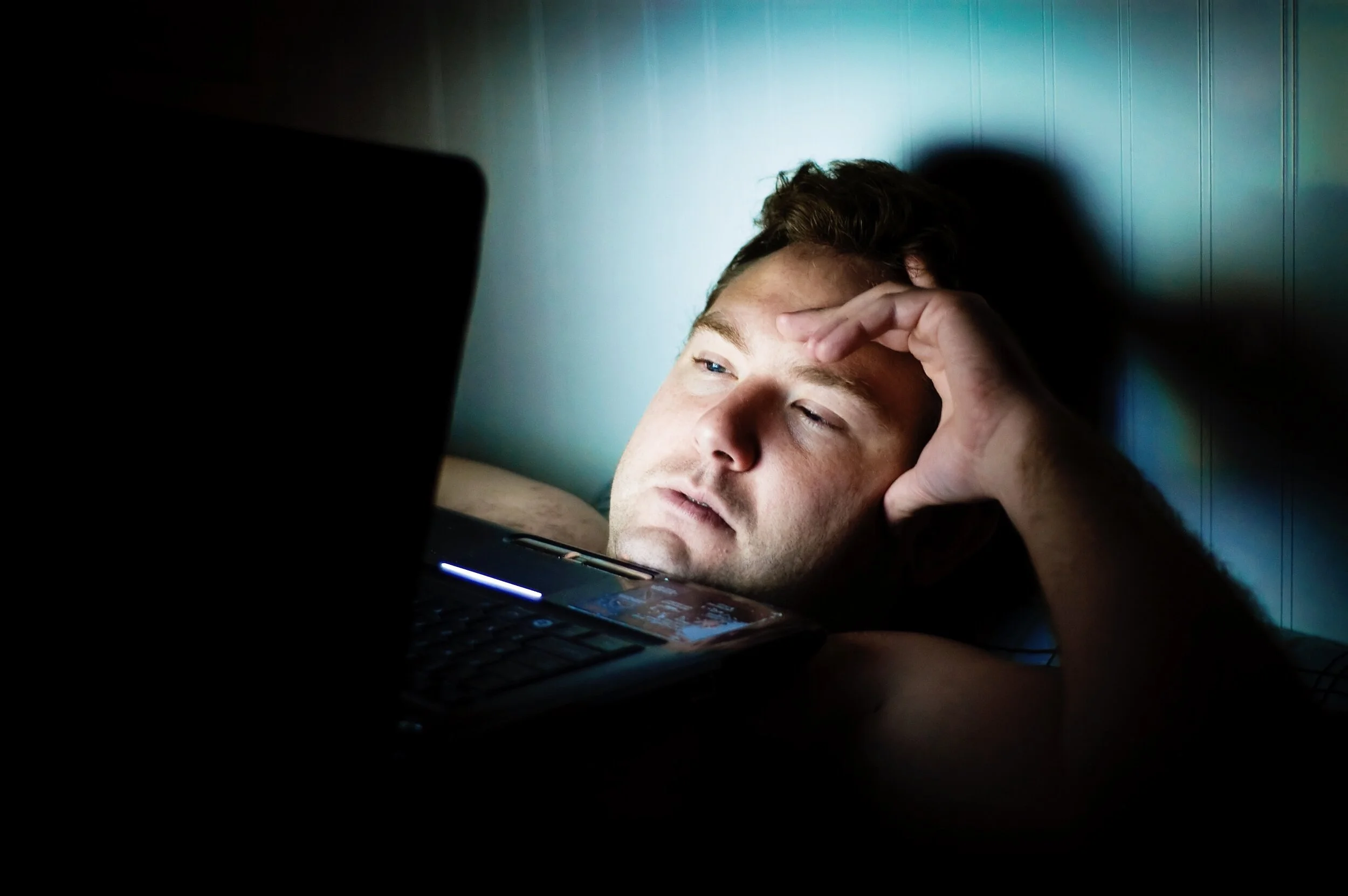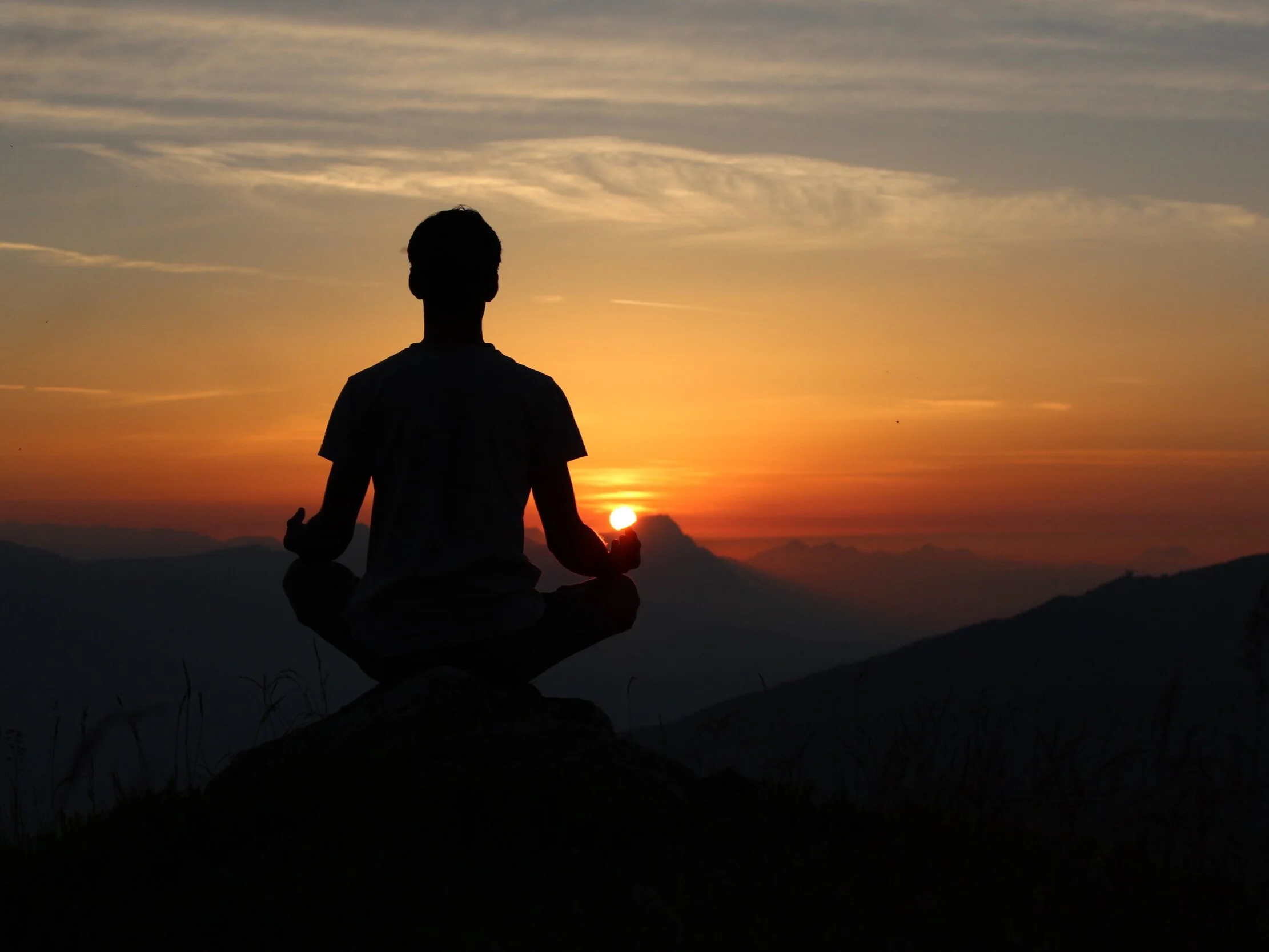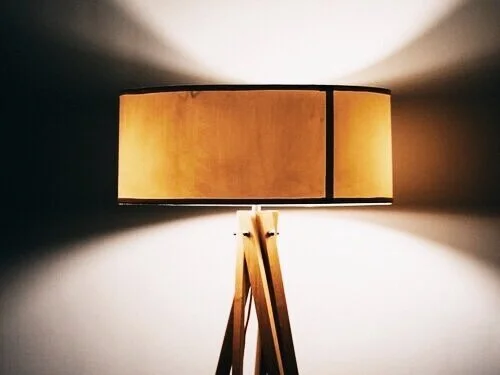
RECENT
Biohacking Sleep: Advanced Techniques for Quality Rest and Optimal Recovery
Biohacking sleep involves leveraging science, technology, and lifestyle modifications to optimize the quantity and quality of your sleep. In this comprehensive guide, we will explore advanced techniques and strategies for biohacking sleep, allowing you to achieve better rest, enhanced recovery, and improved well-being. Whether you struggle with insomnia, jet lag, or simply want to optimize your sleep for better health and productivity, this article will provide valuable insights and actionable tips.
In today's fast-paced and demanding world, sleep is often overlooked or undervalued. However, quality sleep is crucial for overall health, cognitive function, and optimal performance. Biohacking sleep involves leveraging science, technology, and lifestyle modifications to optimize the quantity and quality of your sleep. In this comprehensive guide, we will explore advanced techniques and strategies for biohacking sleep, allowing you to achieve better rest, enhanced recovery, and improved well-being. Whether you struggle with insomnia, jet lag, or simply want to optimize your sleep for better health and productivity, this article will provide valuable insights and actionable tips.
The Importance of Quality Sleep
Before delving into the techniques for biohacking sleep, it's crucial to understand why sleep is essential and the consequences of sleep deprivation.
The Role of Sleep: Sleep plays a fundamental role in maintaining physical and mental health. It is a vital restorative process that allows the body to repair, recharge, and consolidate memories. During sleep, the brain engages in essential functions such as memory consolidation, hormone regulation, and cellular repair.
Consequences of Sleep Deprivation
Chronic sleep deprivation can have significant negative effects on various aspects of health and well-being. These may include:
Cognitive Impairment
Lack of sleep can impair cognitive function, leading to difficulties in concentration, memory, and decision-making.
Mood Disorders
Sleep deprivation is associated with an increased risk of mood disorders, such as depression and anxiety.
Weakened Immune System
Inadequate sleep can weaken the immune system, making individuals more susceptible to illnesses and infections.
Metabolic Imbalances
Sleep deprivation can disrupt hormonal regulation, leading to imbalances in appetite-regulating hormones, such as leptin and ghrelin. This can contribute to weight gain and metabolic issues.
Increased Risk of Chronic Conditions
Prolonged sleep deprivation has been linked to an increased risk of chronic conditions such as obesity, diabetes, cardiovascular diseases, and certain types of cancer.
Understanding the importance of quality sleep underscores the need for effective biohacking techniques to optimize sleep patterns and improve overall well-being.
Sleep Architecture and Circadian Rhythms
To effectively biohack sleep, it's important to grasp the fundamentals of sleep architecture and circadian rhythms.
Sleep Architecture
Sleep is composed of different stages that cycle throughout the night. These stages include:
Stage 1: The transition from wakefulness to sleep, characterized by light sleep and easy arousal.
Stage 2: A deeper stage of sleep where brain waves slow down, and the body begins to prepare for deep sleep.
Stage 3 and 4: Also known as slow-wave sleep (SWS) or deep sleep, this stage is crucial for physical restoration and growth. It is the most restorative stage of sleep.
REM Sleep: Rapid Eye Movement (REM) sleep is characterized by rapid eye movements, vivid dreaming, and heightened brain activity. REM sleep plays a crucial role in memory consolidation and cognitive processing.
Understanding the different stages of sleep helps in optimizing sleep quality by ensuring adequate time is spent in each stage. Other important factors influencing sleep architecture include:
Circadian Rhythms: Circadian rhythms are internal biological processes that follow a roughly 24-hour cycle. They regulate various physiological and behavioral functions, including sleep-wake cycles. The key to optimizing sleep is aligning your sleep-wake schedule with your natural circadian rhythm.
Light Exposure: Natural light exposure during the day helps regulate circadian rhythms, promoting alertness and wakefulness. Getting exposure to natural sunlight in the morning can help synchronize your internal body clock.
Melatonin: Melatonin is a hormone that helps regulate sleep-wake cycles. Its production is influenced by light exposure and peaks in the evening, signaling the body that it's time to sleep. Minimizing exposure to blue light from electronic devices before bedtime can support melatonin production and enhance sleep quality.
By understanding sleep architecture and circadian rhythms, you can tailor your biohacking strategies to optimize sleep quality and align your sleep patterns with your natural biological rhythms.
Advanced Techniques for Biohacking Sleep
Optimizing Sleep Environment
Creating an optimal sleep environment is crucial for maximizing sleep quality and promoting restful sleep. Consider the following techniques:
Dark and Cool Bedroom: Ensure your bedroom is dark, quiet, and at a comfortable temperature. Use blackout curtains, earplugs, or white noise machines to minimize external disturbances. Keeping the room cool (around 65-68°F or 18-20°C) can also enhance sleep.
Comfortable Bedding: Invest in a quality mattress, pillows, and bedding that provide proper support and comfort. The right combination of firmness and softness can make a significant difference in sleep quality.
Reduce Electronic Device Use: Minimize exposure to electronic devices, especially in the hour leading up to bedtime. The blue light emitted by screens can disrupt melatonin production and hinder the onset of sleep. Consider using blue light-blocking glasses or installing apps that filter blue light on your devices.
Create a Relaxing Bedtime Routine: Establish a consistent bedtime routine to signal your body that it's time to wind down and prepare for sleep. Engage in relaxing activities such as reading a book, taking a warm bath, practicing mindfulness or meditation, or listening to calming music.
Sleep Hygiene Practices
Incorporating good sleep hygiene practices into your daily routine can significantly improve the quality of your sleep. Here are some effective strategies:
Maintain a Consistent Sleep Schedule: Try to go to bed and wake up at the same time every day, even on weekends. This consistency helps regulate your body's internal clock and promotes better sleep quality.
Limit Caffeine and Stimulant Intake: Avoid consuming caffeine or stimulants close to bedtime. These substances can interfere with sleep onset and reduce sleep quality. Be mindful of hidden sources of caffeine, such as certain medications, chocolate, or certain teas.
Avoid Heavy Meals and Alcohol: Large, heavy meals before bedtime can disrupt sleep due to indigestion. Similarly, although alcohol may initially induce drowsiness, it can negatively impact the quality of your sleep and lead to fragmented sleep patterns.
Regular Exercise: Engaging in regular physical activity can promote better sleep quality. However, avoid vigorous exercise close to bedtime, as it can stimulate the body and make it more difficult to fall asleep. Aim to finish exercising at least a few hours before bedtime.
Manage Stress and Relaxation Techniques: Chronic stress can interfere with sleep. Practice stress management techniques such as deep breathing exercises, progressive muscle relaxation, or engaging in activities that promote relaxation and mindfulness.
Advanced Sleep Technology and Tools
Advancements in technology have provided us with various tools to optimize sleep. Consider incorporating the following advanced sleep technologies:
Sleep Trackers
Wearable devices or smartphone apps can track your sleep patterns, providing insights into your sleep duration, sleep stages, and movement. This information can help you identify patterns and make adjustments to improve your sleep.
Light Therapy
Light therapy devices simulate natural sunlight and can be used to regulate your circadian rhythm, especially useful for individuals with irregular sleep schedules or those affected by seasonal affective disorder (SAD).
White Noise Machines and Sleep Sound Apps
These tools can create a soothing ambient noise that masks disruptive sounds and helps promote deeper sleep. They are particularly beneficial for individuals who are sensitive to noise disturbances.
Smart Mattresses and Sleep Monitors
Smart mattresses or sleep monitors can track your sleep quality, heart rate, and even adjust mattress firmness based on your preferences. These tools provide personalized insights to optimize your sleep experience.
Discussion of Nootropic Supplement Brands and Sleep Aids
When it comes to sleep aids and nootropic supplements, it's important to exercise caution and consult with a healthcare professional. While some individuals may find certain supplements helpful for sleep, it's crucial to choose reliable brands and follow recommended dosages. Here are some popular sleep aids and nootropic supplements:
Melatonin
Melatonin supplements can be effective for individuals with circadian rhythm disorders or jet lag. Look for reputable brands that offer pure melatonin and start with the lowest effective dose.
Magnesium
Magnesium is a mineral that plays a crucial role in sleep regulation. It can promote relaxation and help individuals fall asleep faster. Consider magnesium glycinate or citrate forms for better absorption.
L-Theanine
L-Theanine is an amino acid commonly found in green tea. It has relaxing properties and may help improve sleep quality. Look for brands that offer pure L-Theanine without additives.
Valerian Root
Valerian root has been traditionally used as a natural sleep aid. It may help with sleep onset and improve overall sleep quality. Choose reputable brands that provide standardized extracts.
CBD Oil
Cannabidiol (CBD) oil is derived from the hemp plant and is known for its potential relaxing and calming effects. It may help individuals manage stress and promote better sleep. Select CBD oils from trusted brands that provide third-party testing for quality and purity.
Remember, individual responses to sleep aids and nootropic supplements can vary. It's important to start with lower dosages, assess your tolerance, and consult with a healthcare professional if you have any underlying health conditions or are taking medications.
Is melatonin safe for kids?
Melatonin is a hormone produced by the pineal gland in the brain that regulates the sleep-wake cycle. It has become a popular supplement for adults to improve sleep quality, but some parents have also turned to melatonin to help their children sleep. However, there are concerns about the safety of melatonin supplementation for kids, and a recent study suggests that it may have an effect on puberty.
Melatonin is a hormone produced by the pineal gland in the brain that regulates the sleep-wake cycle. It has become a popular supplement for adults to improve sleep quality, but some parents have also turned to melatonin to help their children sleep. However, there are concerns about the safety of melatonin supplementation for kids, and a recent study suggests that it may have an effect on puberty.
First, it is important to note that the use of melatonin in children is generally considered safe when used appropriately and under the guidance of a healthcare professional. Melatonin is a hormone that is naturally produced by the body and helps to regulate the sleep-wake cycle. It is sometimes used to treat sleep disorders, such as insomnia or jet lag, in adults and children.
However, there are some potential risks associated with melatonin supplementation in children. One concern is that it may interfere with the normal development of the sleep-wake cycle in children. Children naturally produce melatonin at higher levels than adults, and supplementing with melatonin may disrupt this natural rhythm.
Another concern is that melatonin supplementation may affect the development of children's reproductive systems. A recent study published in the Journal of Clinical Endocrinology & Metabolism found that melatonin supplementation in prepubertal boys was associated with an earlier onset of puberty. The study followed 116 boys between the ages of 6 and 16, and found that those who had taken melatonin had higher levels of testosterone and an earlier onset of puberty compared to those who had not taken melatonin.
While this study is concerning, it is important to note that it is just one study and more research is needed to fully understand the potential effects of melatonin supplementation on children's development. Additionally, the study only included boys, so it is unclear whether the same effects would be seen in girls.
Despite these concerns, melatonin is still considered safe for short-term use in children when used appropriately and under the guidance of a healthcare professional. The American Academy of Sleep Medicine recommends that parents and caregivers should first try behavioral approaches to help their children sleep, such as establishing a consistent bedtime routine, avoiding electronics before bed, and creating a calming sleep environment. If these approaches do not work, then a healthcare professional may recommend melatonin supplementation.
When using melatonin, it is important to follow the dosing instructions carefully and only use a reputable brand. The appropriate dose of melatonin will vary depending on the child's age, weight, and sleep disorder, and a healthcare professional can provide guidance on the appropriate dose.
In summary, while melatonin supplementation in children is generally considered safe when used appropriately and under the guidance of a healthcare professional, there are some potential risks to consider. Parents and caregivers should first try behavioral approaches to help their children sleep, and only consider melatonin supplementation if these approaches do not work. Additionally, more research is needed to fully understand the potential effects of melatonin supplementation on children's development.
Sources:
American Academy of Sleep Medicine. (2017). Clinical practice guideline for the pharmacologic treatment of chronic insomnia in adults: an American Academy of Sleep Medicine clinical practice guideline. Journal of Clinical Sleep Medicine, 13(2), 307–349. https://doi.org/10.5664/jcsm.6470
Buscemi, N., Vandermeer, B., Pandya, R., Hooton, N., Tjosvold, L., Hartling, L., … Klassen, T. P. (2006). Melatonin for treatment of sleep disorders. Evidence Report/Technology Assessment, (108), 1–7.
Carskadon, M. A., & Dement, W. C. (2011). Normal human sleep: An overview. Principles and Practice of Sleep Medicine
14 ways to improve your sleep
A good night’s sleep is one of the most important things you can do for your overall health, arguably more important than diet or exercise. Poor sleep has been linked with weight gain, heart disease, increased risk of infection, diabetes, reduced sex drive, memory problems, cancer, depression and ultimately death!
7/10 people have difficulty sleeping at least one night per week (1). If you are reading this article then chances are you do too.
A good night’s sleep is one of the most important things you can do for your overall health, arguably more important than diet or exercise. Poor sleep has been linked with a range of health problems including weight gain (2), heart disease (3), increased risk of infection (4), diabetes (5), reduced sex drive (6), memory problems and Alzheimer’s (7), cancer (8), depression (9) and ultimately death (10)!
This article outlines various methods which have been shown to improve sleep. Unfortunately there is no one-size-fits-all solution however experimenting with various approaches below should help you get a better nights rest.
Fix your diet
Avoid sugar
High sugar intake has been associated with lighter, less restorative sleep and more awakenings during the night (11). This can lead to a viscous cycle, when people are tired from lack of sleep, they tend to crave more junk food, so the cycle repeats (12). Try to avoid foods high in refined
sugar, especially before bed.
Avoid spice
Spicy food may also be a culprit in keeping you awake. Not all spicy food is to blame (some spices may help promote sleep) but chili and mustard have been shown to raise body temperature, which is the enemy of sleep.
The active ingredient capsaicin is the culprit (13). In addition too much spicy food can cause gastric disturbance, indigestion and can leave you feeling restless throughout the night.
Avoid alcohol
A glass of red wine might make you feel sleepy, and indeed alcohol can help people to fall asleep but several studies have shown alcohol reduces REM sleep. REM sleep is the stage of sleep when you are dreaming, and it is thought to be the restorative phase of sleep.
Alcohol also causes dehydration, and releases toxins into the body which can make you feel even worse in the morning.
In one study as little as one drink was shown to impair sleep quality. Moderate alcohol consumption lowered restorative sleep quality by 24% and a high alcohol intake by as much as 39% (14).
Change your behavior
Don’t do this!
Eliminate screens
Cell phones, television screens and computers all emit blue light. Blue light has been shown to reduce our body’s natural production of the sleep inducing hormone, melatonin.
A study of screen use before bed found screens emitting more blue light led to poorer sleep outcomes (15).
If you need to use a screen before bed,
try to activate the blue light filter, or wear
blue blockers (described below).
Try meditation
Is a racing mind keeping you up at night? Oftentimes when we lie in bed we start replaying the days events or we start worrying about the future.
Meditation helps focus the mind on the present, it helps us acknowledge and realize the thoughts and emotions which are causing us stress and anxiety.
It has been shown that meditation helps slow breathing and lower the heart rate (16), both of which help the body relax and fall asleep. Mindfulness meditation has been shown to be an effective way to promote sleep (17).
If you are new to meditation I suggest using a guided meditation, you can find a number guided meditations on YouTube or through apps such as Headspace, or Waking Up.
Read a book
Reading, like meditation refocuses the mind away from stressful thoughts and anxieties.
One study showed that reading a book for only 6 minutes reduced stress levels by 68% (18), which was more than listening to music, drinking tea or going for a walk.
Reading is also a good substitute for television and social media, which have been shown to expose viewers to blue light which is responsible for keeping them awake.
Change your environment
Reduce lighting
When humans are exposed to blue light, the body ceases to produce melatonin. This can disrupt the body’s natural sleep cycle, otherwise known as the circadian rhythm. Exposure to blue light signals to the body that it should be awake. In one study exposure to even a dim light at night
was associated with decreased total
sleep time and sleep efficiency (19).
At least 2 hours before bed try to turn off as many lights as you can, use dim bulbs where possible and when sleeping try to eliminate all sources of light (cover any light coming from digital displays) and use blackout curtains if you have light coming from the window.
Control the temperature
A small change in temperature can have a drastic impact on sleep quality. A cooler environment can help promote sleep.
Interestingly when humans sleep our CORE body temperature drops, but our skin temperature actually increases. This happens because higher
skin blood flow helps helps cool the body.
One way to lower your core body temperature is to lower the temperature in your bedroom, also avoid strenuous exercise before bed. if you want to take it to the extreme, you can go to bed wearing nothing but socks and gloves! This can actually help lower your core temperature as it will stimulate the body to push blood to your extremities to stay warm, this will increase your skin temperature while cooling your core, it may look strange but it works.
Eliminate abrupt noise
Environmental noise is a significant cause of sleep disruption, the WHO published guidelines in 2009 stating that annual average night noise exposure should not exceed 40 decibels, similar to a quiet street in a residential area. Anyone exposed to higher levels than this is at risk from
adverse health effects (20).
Try to eliminate sources of noise where possible, if this can’t be done try earplugs or play some white-noise, white noise (as opposed to abrupt noises) can actually help calm the mind and promote restful sleep.
Try supplements
Melatonin - For jetlag
Melatonin is a hormone found naturally in the body, the primary responsibility of this hormone is to regulate our sleep-wake cycles. Melatonin levels rise in the body when darkness occurs, causing us to feel sleepy. Melatonin levels stay elevated during the night and fall to almost zero during the day.
One of the causes of jetlag is a disruption in the sleep-wake cycle. If jetlag is making it difficult to fall asleep then taking a melatonin at bedtime can help shift the sleep cycle earlier. Inversely if jetlag is causing you to wake early, taking melatonin upon waking can help you fall back to sleep and will also shift your sleep cycle later. The same is true for shiftworkers with disrupted sleep cycles.
Studies have shown melatonin can be an effective treatment to adjust the timing of sleep cycles in those affected by jetlag (21), and possibly for the treatment of insomnia. As a generic sleep aid for someone not experiencing jet lag or sleep cycle disruption melatonin has not been shown to be effective.
Glycine - For those looking for a mental boost
Glycine is an amino acid which your body uses to create proteins, the body naturally produces glycine from other amino acids and Glycine is found in protein rich foods. Glycine is also available as a dietary supplement.
It is believed Glycine induces sleep by reducing core body temperature, it does this by dilating the blood vessels in the periphery of the body, which results in heat loss (22). During a normal sleep cycle, sleep usually occurs when our core temperature is dropping, as it would after glycine supplementation.
Glycine has been shown to not only improve sleep quality but as a bonus it has also been shown to improve feelings of daytime sleepiness and improve performance of memory recognition tasks (23).
Valerian root - For the light sleeper
Valerian is a herb which is native to Europe and Asia, an extract of the root of the plant is commonly sold as a dietary supplement to promote sleep. Valerian has been used as a medicinal herb to since Ancient Greece.
Many of the studies on valerian remain inconclusive and the exact mechanism by which valerian has its effects are not fully understood. It is believed that Valerian acts on the GABA receptors in the brain, similar to benzodiazepines (a commonly prescribed class of drugs for sleep and anxiety) (24).
A recent meta analysis of the various studies examining valerian as a sleep aid concluded that valerian might improve sleep quality (25).
Try these wearables
The Manta Sleep Mask takes it to a new level
Eye mask & earplugs
Noise and light can be very detrimental to sleep quality. Even if we are not fully woken background noise or residual light from a street lamp, clock radio or even the morning sun can significantly lower sleep quality. One study of patients in an intensive care unit showed that the use of earplugs and eye masks resulted in significantly more REM sleep, less
awakenings and elevated melatonin levels (26).
Felix Gray makes some trendy blue light blockers without the ugly orange lenses
Blue light blockers
Our bodies natural sleep cycles (the circadian rhythm) is regulated by the production of melatonin in the human body.
Studies have shown that melatonin production is suppressed when humans are exposed to blue light. In the natural world this makes sense, the sun goes down and the human body starts producing melatonin which helps induce sleep. Unfortunately today we are surrounded by artificial lighting which inhibits our bodies natural production of melatonin. In addition some studies suggest a link between exposure to light and an increase risk of cancer, diabetes, heart disease and obesity (27).
Wearing blue light blocking glasses in the evening for a few hours before bed is one way to fool the brain into producing melatonin again. Wearing glasses in the evening may look strange but it’s probably a better option than lighting your whole apartment like a brothel.
References
https://www.consumerreports.org/sleep/why-americans-cant-sleep/
https://www.pnas.org/content/early/2013/03/06/1216951110.abstract
https://www.sciencedirect.com/science/article/pii/S0006899311014302
https://jamanetwork.com/journals/jamaneurology/fullarticle/1788611
https://academic.oup.com/ajcn/article/107/1/43/4794751#112507111
https://www.tandfonline.com/doi/full/10.1080/07420528.2017.1324878
https://www.health.harvard.edu/heart-health/meditation-offers-significant-heart-benefits
https://jamanetwork.com/journals/jamainternalmedicine/fullarticle/2110998
https://www.telegraph.co.uk/news/health/news/5070874/Reading-can-help-reduce-stress.html
health/noise/publications/2009/night-noise-guidelines-for-europe
https://link.springer.com/article/10.1111/j.1479-8425.2007.00262.x
https://www.health.harvard.edu/staying-healthy/blue-light-has-a-dark-side

















